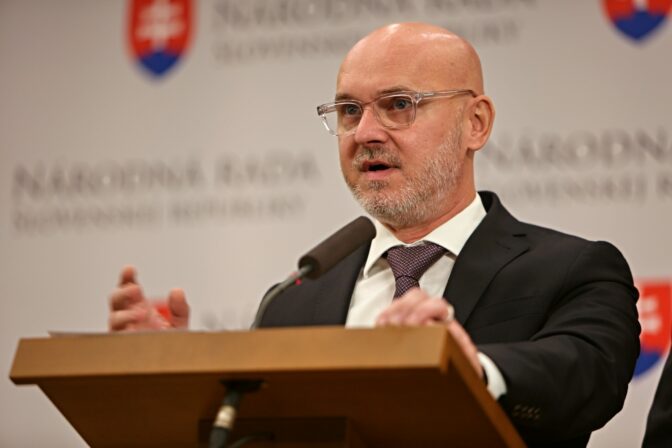BRATISLAVA, September 27, (WEBNOVINY) — The National Bank of Slovakia (NBS) has revised its outlook for the development of Slovakia’s economy downward on Tuesday. According to the latest prognosis, the central bank expects gross domestic product to grow by 3.4 percent this year, instead of the originally projected 3.6 percent. The bank also revised its projection for next year from 4.7 percent to 3.8 percent. The central bank has been gradually revising its prognosis for economic growth upward until now, but concerns regarding a potential global recession, which started to arise at the turn of July and August, halted this trend. The National Bank of Slovakia currently estimates that Slovakia’s economic growth will accelerate to 5.1 percent in 2013.
The National Bank of Slovakia (NBS) sees weaker foreign demand as well as continuing stagnation in domestic demand as the primary causes behind deceleration of economic growth. Final consumption of households should fall this year, according to the NBS, despite the gradual increase in employment, because of the ongoing negative consumer sentiment. Consolidation of public finances will also affect GDP growth. “In the medium-term, moderate acceleration in economic growth thanks to recovery of the local economy as well as continuing global economic growth is expected,” concluded NBS Governor Jozef Makuch on Tuesday.
The central bank’s latest prediction is based on a scenario counting on gradual stabilization on the financial markets, although it admits that further developments could be shaky. For that reason, risks of a further slowdown of the economic growth are prevailing. “Downward risks prevail in the current prediction of the whole horizon. The primary risk is a continuation of the present slump in economic sentiment, influenced by the situation on financial markets in the eurozone and subsequent slower pace of economic growth,” claims Makuch.
The governor of the National Bank of Slovakia thinks that a recession in the eurozone, which would lead to substantially restricted foreign demand also for Slovakia, is currently not looming large. “We refer to downward risks, not to a recession. I personally believe that the “W threat” is lower than is sometimes indicated. Of course, there is always some probability but I do not think it is substantial,” said Makuch on Tuesday.
Worse-than-expected economic development is expected to affect employment, as well, especially next year. The central bank increased the prognosis of the 2011 employment growth from 1.6 percent to 1.8 percent, but revised it downwards by 0.3 percentage points to 0.8 percent for 2012. Employment should swell by 1.2 percent in 2013.
The central bank does not expect any substantial changes in price development compared with the previous forecast. The bank increased prognosticated harmonized inflation by 0.1 percentage points to 4.2 percent for this year and on the other hand, slashed its forecast by 0.3 percentage points to 3 percent in 2012 and 0.1 percentage points to 2.4 percent in 2013. Makuch believes that the price development will be negatively affected by an increase in regulated prices. “The price increase should be gradually slowing down as of 2012, thanks to subsiding effects of an increase in indirect taxes and high food and energy prices,” he added.
Slovak economic growth is thus likely to slow down in 2011 after last year’s recovery to 4 percent, from its critical slump in 2009.
SITA












